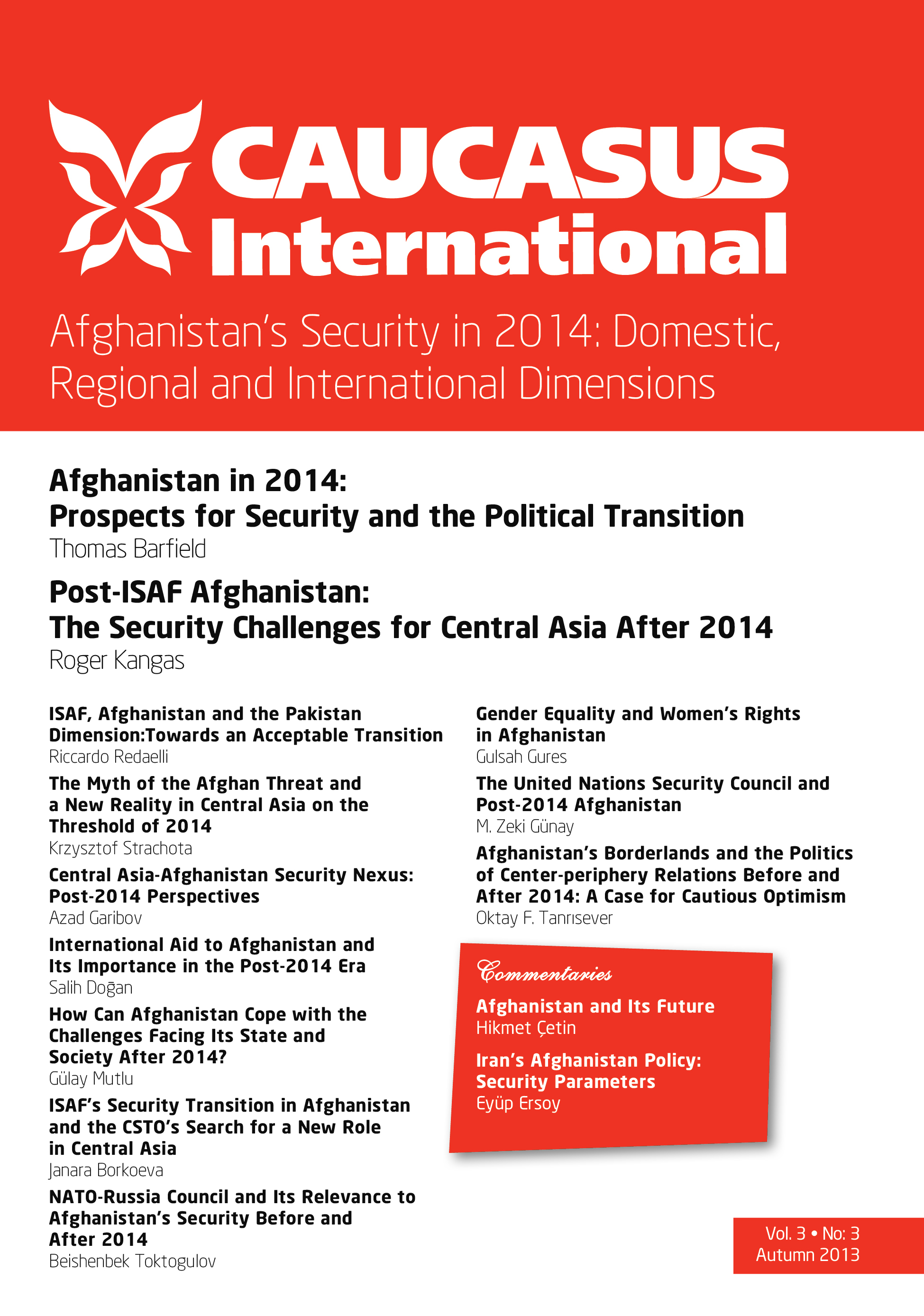NATO-Russia Council and Its Relevance to Afghanistan’s Security Before and After 2014
This article examines the post-9/11 developments in NATO-Russia relations and Afghanistan`s role in setting the scope of their bilateral cooperation. More specifically, the article analyzes the efforts of the NATO-Russia Council (NRC), a mechanism for cooperation between NATO and Russia in fighting terrorism and insurgency in Afghanistan between 2002 and 2014. Subsequently, the paper prospectively assesses Russia’s position in relation to the post-NATO Afghanistan. NRC was established in 2002, in response to increasing concerns about terrorism after 9/11. Drawing on the positive cooperation generated by the post-9/11 fight against terrorism, NRC provided a fresh start for NATO-Russia relations, and facilitated building bridges in order to tackle new security challenges, with a special emphasis on terrorism, in the broader Euro-Atlantic region. Thus since the establishment of NRC, NATO and Russia have been cooperating more intensively. In terms of it being a safe haven for terrorists, Afghanistan immediately rose to the top of the agenda as a key issue for cooperation between NRC and Russia. Accordingly, under the NRC, NATO and Russia have actively cooperated on the stabilization of Afghanistan, and even signed transit agreements for transferring and transmitting non-military equipment through Russian territory to Afghanistan, to be used by the NATO mission (ISAF). Nonetheless, the article argues that despite the level of cooperation achieved, one can scarcely argue that this cooperation will endure. This is because, as the forthcoming NATO withdrawal shows, Russia`s post-2014 cooperation with NATO in Afghanistan will depend on the nature of the NATO mission. In this sense, Russia has expressed that for it to further cooperate with NATO in Afghanistan, NATO needs to have a valid legal basis, and UN Security Council authorization.
Latest news
- 03/17/2020 Call for Submission: “Non-Alignment Movement and Its Perspective in International Affairs”. Deadline: 1 July 2020 2624 views
Popular articles
- 02/24/2020 The Role of Irredentism in Russia’s Foreign Policy 2535 views
- 02/24/2020 Construction of sub-national identity vis-à-vis parent state: Gagauz case in Moldova 2218 views
- 02/24/2020 The Conflict in Ukraine - The Geopolitics of Separatism and Divergent Identities (Commentary) 2072 views
- 02/24/2020 The Role of the Soviet Past in Contemporary Georgia 2044 views





